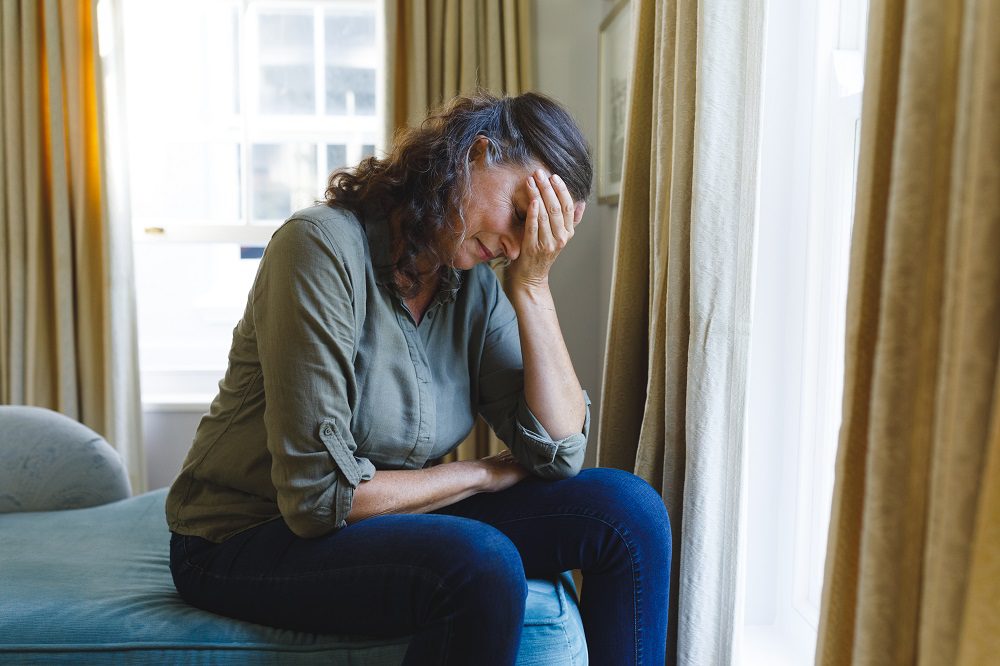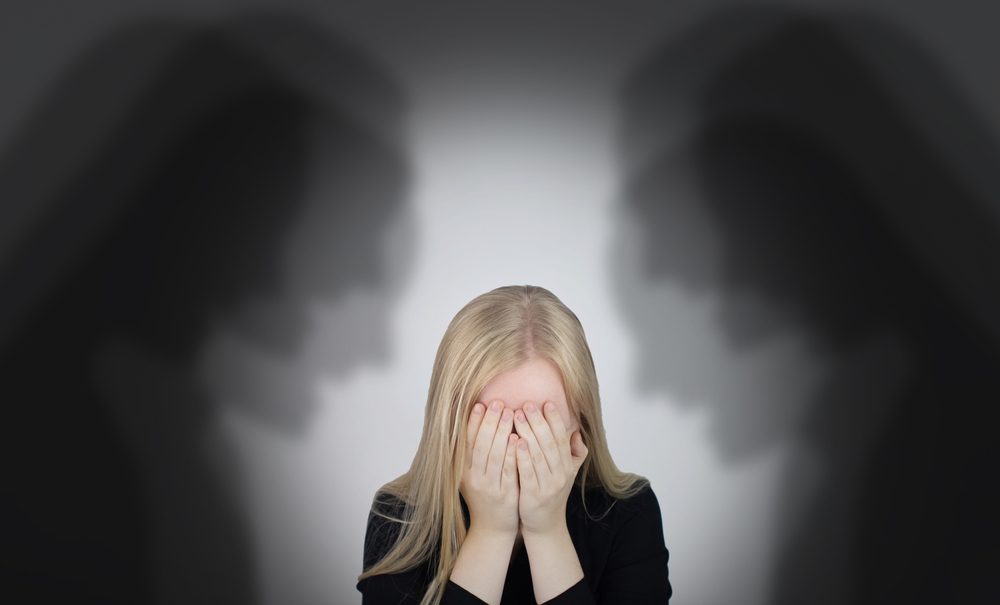
8. Stop stressing so much
Stress has a major impact on your mental and physical health, so no wonder it’s one of the things you should stop after 60, or as early as you can, to be honest. Stressing too much will make you anxious, make you lose sleep during the night, weaken your body, and make it more susceptible to diseases and viruses.
I know that certain situations can be incredibly stressful, and while you can’t stop this completely, you can try different techniques to calm down, such as breathing exercises, yoga, walks, talking to someone you’re close to, reading, and meditating.
Do you know any other things you should stop after 60 that we didn’t include in our list? Let us know in the comments below! If you have any requests from us on what you’d like to read, share your thoughts with us.
Until next time, here’s another great post for you: 7 Toxic Relationship Red Flags You MUST Watch Out For










Something else to avoid after 60 is impulse buying and binge watching tv. One zaps your fixed income and the other stops you from
Getting out and engaging in life!
This is so very good advice also. Thank you 🙏🏾
Too much crap. Too many page jumps. I’m blocking this.
Well, you can obtain a heart/pressure monitor you place on your finger and monitor it yourself. Then you have peace of mind between doctor check ups
Hi Carolyn, True what you said about the Blood pressure monitor, It is important and helps me to decide if I need a blood pressure pill or not. I have one here at home. I feel safer that way, especially because I have arteriosclerosis. Thank you for your tip.
Yes…we have one
Thank you for this article,, it has helped me make two decisions !
3. Stop skipping blood pressure readings?
It has been RECOMMENDED that Sr. Citizens take and record your blood pressure. The reason given is that the BP reading in the office being only a spot check. The daily at home BP readings give the Doctor a better understanding of how your BP is running and identifying any problem. My Dr. suggested that I do this, and AARP has recommended it.
6. Stop hoarding
Down seizing is a good thing. Male a list of items you want to go to family members first. Have a Garage sale, they are a good way to make some extra spending money and help young people to acquire useful items at a lower price. What you have Not designated as a gift to others can be donated to charity.
All advice is correct but hard to break ”the be there for everyone ”
I am sole owner and operator of a small cleaning service for almost 30 yrs and find it hard to downsize
I am 66 and will retire at the end of 2025 and take some college classes and some boxing and excercise lessons
The pandemic made me realize I enjoy my time to care for me but telling my clients that I will no longer be avail is not easy as they have put the pressure on and I have already ”retired a few that
I felt they were being selfish and disrespectful to me as trying to make me feel guilty for wanting to enjoy my maturing years
So I made a plan and will stick with classes to improve my intellect and physical well being and keep a few of my clients that are very flexible and an accept my lifestyle changes.
What do you do when your husband is still emailing the person he had an affair with but says that he is still in love with you.
Very simple… leave, no conversation, no long drawn out argument so he can gaslight you, just found out what that was recently… leave a note if you’d like, but I would realize the choice he’s made and walk out quietly… you deserve better, that’s not love
First, he is being disrespectful to you, by continuing to talk to them. How can he love you and disrespect you at the same time? It’s not both its one or the other. Me, I would move out. You, you know what you’re capable of, it’s up to you. What if he continues this for however long, you’re just going to sit and listen? You’re making yourself evil not him. So sorry…
If he knows that that you know his activities and continues to write the letters he obviously doesn’t give a damn about your feelings. My advice ( and this is coming from a man ) drop him quicker than a hot potatoe. Or throw computer out the windows and tell him the next time you catch him writing her he will join the computer. Or phone or whatever he uses to communicate to her with
I’m my opinion, once somebody chooses to do that, they have allowed an outside entity to influence the your relationship and it rarely will ever be the same. One will feel empowered, and one will feel being left wanting. By staying, you are delaying the inevitable. In the end, people do what they want to do, and when they don’t want to do something, they simply won’t. He wanted to do it. As difficult as it is, begin the preparation to leave and don’t look back!
That’s really a tough one. How does it make you feel? And, importantly, do you feel loved by him?
Stop ignoring your medical , financial and end of life obligations. Identify a primary care doctor that matches your medical insurance, care documents, medical power of attorney, Medicare, and Social Security, end of life decisions, developing a plan that will best will meet your needs, and a will.
Over 60 stop reading horrible journalism such as this article
Exactly!! You are still young at 60.
You can refuse to download Web Companions, and live alone.
Reading crap like this is something I have definitely cut back on.
Baloney to all of it! We have needs when we’re young and those needs don’t just disappear when we reach age 60. Sure, things like taking your blood pressure at home and monitoring it yourself may be a good idea – for some people. For others, if it’s high it stresses them out which, of course, tends to raise it even more.
Find a time to serve God in many ways. Volunteer in your local church to help whatever you can do. I am a Roman Catholic by religion, and I serve as a Lay Minister of Holy Communion in my church during Holy mass. God Bless!
Set boundaries
Learn to say “ NO” without an explanation
Declutter inch by inch, ( baby steps) it tends to be less overwhelming.
Forgive yourself for passed mistake and leave it in the past and move on.
Don’t START talking about all your aging ailments. Younger people don’t care, and people your own age are only pretending to care.
Talk to your doc or bore your partner, but focus on more pleasant things in conversation.
Good common sense advice. Albeit seems somewhat disconcerting do your best it will make you feel better about yourself and that’s very important.
Not confined to those over 60…
I know it’s good thing.
I have some Health concerns at my age of 73. I fell of my two wheel Trek bike in the street breaking my left elbow. This required surgery and a screw placed inside. With great Therapy I am just about 100%!!
Today I drive my KIA SUV and today marks the first ADVENTURE DAY WITH TWO FRIENDS!! WE GO TO A BAR FOR LUNCH AND BEER WITH A POSSIBLE SHOT HERE AND THERE. I AM DESIGNATED Driver so I watch/ count my drinks and the decide we should leave.
I do some 30 minute+ walking!! Trying to gather up courage and a plan to go back to my gym. Which will include using less weights and more of a walking Enjoyment.
If you get a blood pressure monitoring devise do your research and get one that is accurate. It may cost more but it is worth it.
Another thing to remember as you get older is that there are going to be more disappointments from your children, spouse, job, income, body, health and a myriad of other places. You need to not let them eat at you, and disturb your overall feeling of well-being. You need to let these things go and find new things that give your life purpose and meaning beyond the items I just cited. You also need to find something that gives you comfort, peace, a sense of belonging and gives you something to look forward to. I find that prayer, reading the Bible, Church, developing strong relationships with friends and challenging myself to try new things like writing a book or seeing a new movie, or sports events can ease the pain of disappointment. At bottom, you have to find things that make you happy and comfortable and give you strength to face each and every day. Resilience is key!
This is a great list. I am going to send it to my over sixty aged siblings.
Toxic, negative friends/relationships
Will try
Good advice
Taking stress out of your life is great advice, just not feasible for everyone concerned. Many people over 60 still work for a living which can produce stress all by itself, commuting, troublesome bosses and co-workers, etc. not to mention crazy landlords and neighbors for renters. Some stress will follow you til the day you die if trapped in certain circumstances.
Most of this article is banal . I am not one who enjoys eating out, especially with other people. I have a diabetic dog and my routine is dictated by timing of insulin injections and feeding times. I find my wife’s relatives lacking in interest. I am criticized by them for using military time in the dogs log book for documenting injection times! I walk , I read , I have a hobby!business. We are relegated to hotels because they don’t like anyone staying in their homes!
Wife’s relatives lacking in interest…😂😂😂
Gotta love how kindly you expressed your complete boredom… 😂😂😂
Just as I’m struggling at age 67 with agesim. I want to feel/act as ifI was still young like in my 30’s & 40’s,& I like to surround myself with younger people.
I take a brisk 3 -4 mile walk almost everyday. It has strengthen my bones and makes me feel better.
Keep in mind the healthy ways you were raised; I’m certain that will be a great thing foe you.
# 10. Stop paying attention to crackpot articles on the Internet.
Yes…we monitor our BP REGULARLY
I read something every day even it’s only for a half an hour. If you read a variety of things you continue to educate yourself daily, which can help you stay alert and prevent dementia unless of course it’s hereditary.
I search out people to speak with, even if it’s strangers in a grocery store because socialization is so important as we age and depression can result from isolation.
Hi
These are useful tips for those over sixty, butt why show a inappropriate pic with a dog’s wanker showing?? Would have been easy enough to blur it out .
I am 68 and my wife is 61. I retired 5 months ago and are still raising a 13 yr old and a 7 yr old since they were 2. Living only on social security. How to cope has been a struggle.
I am just learning that I need to focus on myself and my care. Only do the things that bring joy
Thank you, ladies, wow what a boob the writer is. So here I am retired, not “worrying” yet I have to schedule, and then go for a “Blood pressure” reading. Oh I forgot that we are so old and senile, LOL we can’t take our own “Blood Pressure” Kiddo, (whoever wrote this) while you schedule, it’s Martini time
Agreed on all 8, but maybe stop doing those things much earlier than 60!
I disagree with your comments about stop eating everything….at age 92 I eat what and when I want to
And my 92 year old wife does the same..some days we will eat three normal meals..today we at
At Texas roadhouse and had a 6 Oz steak, salad with bacon bits and thousand island dressing and a sweet potatoes with sugar and cinnamon and 1 dinner roll with butter..did not eat breakfast..will have peanut butter sandwich, milk, chocolate cookie and ice cream for dinner..sister lived to 97, brother
To 96…what am I doing wrong at my age. George
Fact that you are in your 90s and able to list out your accomplishments on this platform in a discernible manner is enough to convince me
I was worried before I started reading this article that you were going to say give up sex … I am so relieved that wasn’t on your laundry list!!!
Steve from Texas
You can get senior discounts at Wendy’s, Burger King, Outback, movie theaters, and other places.
My comment is not about what to stop doing after 60. It’s about what to not stop doing. If you like to dress nice there’s no reason to stop now that you are over 60. If you were not fashion conscious before it’s time to start. It will make you feel fresh, younger and more attractive. And, get a haircut of u can.
I think a person after 60 should take the liberty and wear the clothes they want, wear their hair the way they want and not allow no one define or limit what they do because of an age number if this is their dream and desire.
Knowledge never gets old . using it is better as your older (E.R).Thank you for this article. It’s a good reminder .I’m turing 60 in 3 months . The article says ” after 60″ . I take it this means at the age of 61. Just kidding. I have noticed the differences in myself . Physical , mental , emotional , and spiritual . Self care comes from self love (E.R).
Some of the suggestions were very good. However not all of them are practical. We find ourselves in the possession of housing our oldest son. He had a complete mental breakdown after serving as a juvenile defense attorney for 14 years. While he was in the hospital receiving care after a 3 month long episode of Mania. While he was in the hospital his wife left him, took his home, his car, his furniture, his dogs and his money. He lost his license to practice law due to his inability to perform his job. He lost everything, so he is with us. It wasn’t how we planned our golden years but that is our reality. He will be with us until he is healed enough to take over the reins of his life again. We are sometimes judged for “enabling “ him but that is so far from the truth. He is ill and will be cared for by us until he can care for himself. No matter how long that takes. That’s our job as his parents…
Don’t stop learning and sharing! Every day learn or experience something new—whether from a book, a song, a friend, a YouTube video, a piece of art, a podcast, an experience you’re going through, or other!. It could be a life skill, life hack, a philosophical concept, a song, a way to better interact, someone else’s point of view,…. Then take 5-10 minutes at most to write a brief sentence or two about it, and if/when appropriate, share it!
All of the comments were great. We should always try to take the best care of ourselves at whatever age we are, nobody is going to do it for us, try to be active, read and keep our minds active. I like trivia. I have started reading the Bible one chapter at a time. Praying is very important to me, we should do whatever makes us happy and feeling fulfilled.